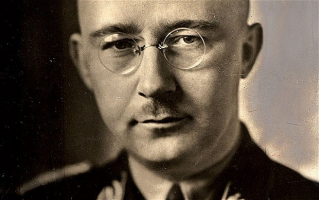Top 9 Interesting Facts about Gerald Ford
Former president Gerald Ford (1913-2006) had the unenviable task of following a disgraced Richard Nixon, the first man to resign from the presidency, in the ... read more...wake of the Watergate scandal. During his relatively short 895 days as president, Ford had to attempt to restore American confidence in the Oval Office. For more on our 38th president, take a look at some of the more unusual facts about his early years, his political feats, and why he once considered being a co-president with Ronald Reagan. Let's take a look at some facts about Gerald Ford.
-
Most of you probably know that Jimmy Carter, the president who replaced Ford, was the first American president to use his nickname in an official capacity (according to Time), which allowed fellow Democrats Bill Clinton and Joe Biden to do the same in the years that followed. But because Gerald Ford wasn't his real name when he was born, Ford was noteworthy in his own right when it came to his name. So what was his real, legal name for the first 22 years of his life?Ford gave birth to Leslie Lynch King Jr. on July 14, 1913 in Omaha, Nebraska. His mother moved to Grand Rapids, Michigan, with her son shortly after his parents, Leslie Lynch King and Dorothy Ayer King, got divorced. After they married the local paint salesman Gerald Rudolph Ford, they began referring to her son there as Gerald Rudolph Ford Jr. However, his name wouldn't be formally changed until 1935. The younger Ford had a tight relationship with his stepfather despite learning at the age of 13 that he wasn't his biological father. When Ford was 17 years old, he happened to run across Leslie L. King in a Grand Rapids restaurant; he later spoke bitterly of the encounter (King had neglected to pay his court-ordered child support) and said he had never truly forgiven his father.
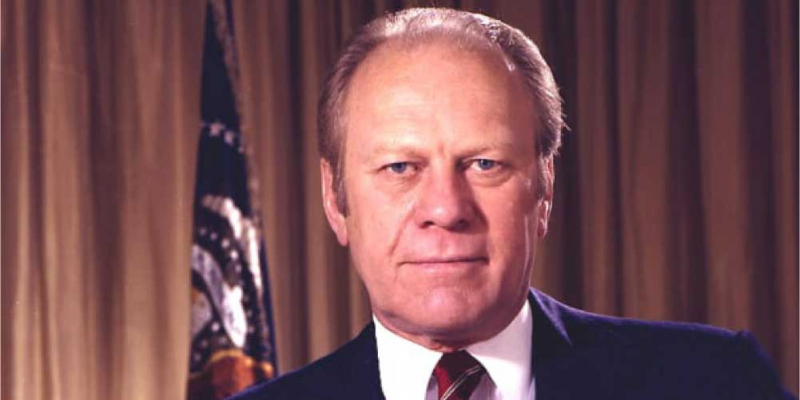
Source: pristyncare.com 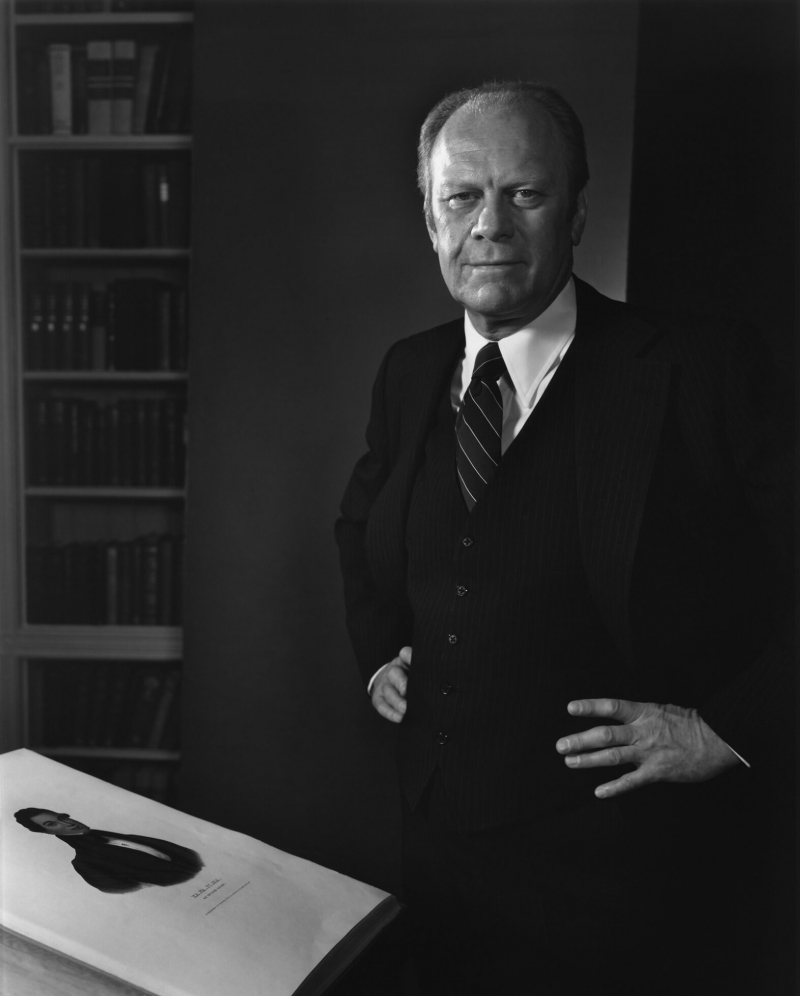
Source: karsh.org -
Ford attended the University of Michigan on a scholarship as a committed high school student-athlete from 1931 to 1935. The university's football team, the Wolverines, won national championships in 1932 and 1933, and Ford was named the club's most valuable player in 1934. (his senior year). After graduating, Ford turned down job offers from the Detroit Lions and Green Bay Packers in favor of accepting positions as head boxing coach and assistant football coach at Yale University, where he hoped to pursue a law career. In New Haven, he instructed future senators William Proxmire and Robert Taft Jr.
Due to his coaching commitments, Ford first encountered hostility from the Yale Law School administration; nevertheless, by 1938, he had gained their approval. Ford later earned a degree in the top third of his class. Ford's political rivals periodically brought up his athletic past while he was serving in Congress. Former President Lyndon B. Johnson made the particularly noteworthy claim that Ford had "played too much football without a helmet."
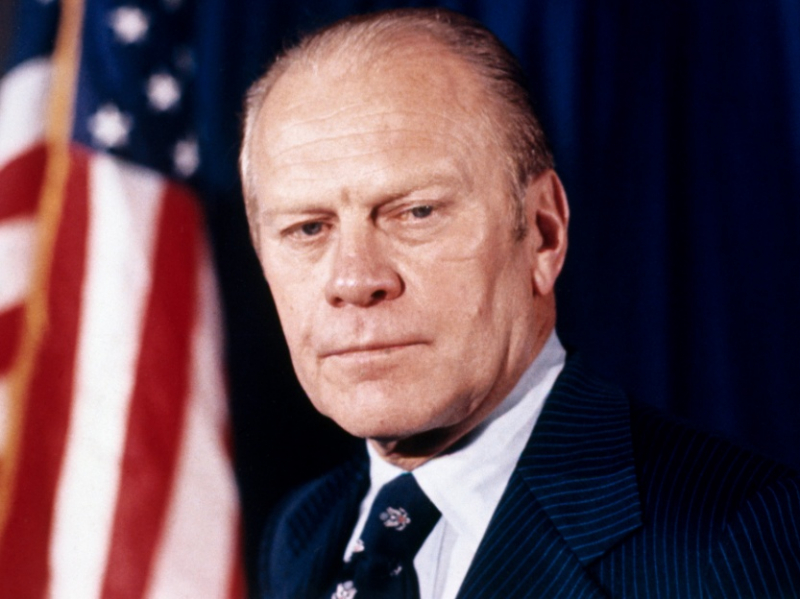
Source:directexpose.com 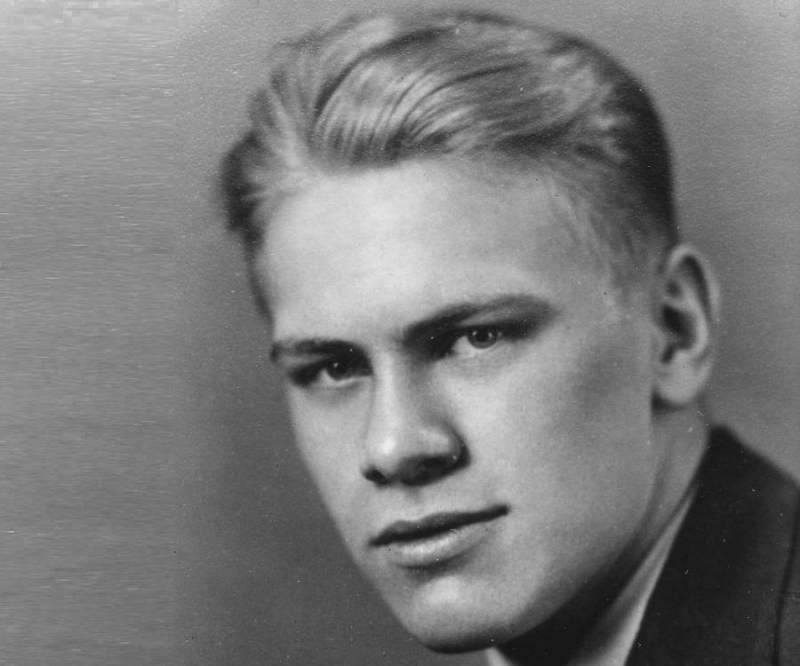
Source: Famous People -
By the time the Japanese attacked Pearl Harbor in December 1941, Ford had already established a law practice in Grand Rapids. Soon after the bombing, he enlisted in the U.S. Navy as an ensign and was assigned to North Carolina as the physical training officer for recruits. Ford kept asking to be sent to a combat unit, so the U.S.S. Monterey, a small aircraft carrier, was sent to the Pacific as a result. He would have earned 10 combat stars by the end of the war as a result of his involvement in fights in locations like Okinawa, Wake, Taiwan, the Philippines, and the Gilbert Islands.
On December 18, 1944, Typhoon Cobra, a strong storm that would destroy three destroyers, damage a huge number of other ships, and injure hundreds of soldiers, struck the Monterey, one of several Navy ships. Ford's obituary in the New York Times stated that the future president nearly perished when the typhoon nearly washed him off the topside deck.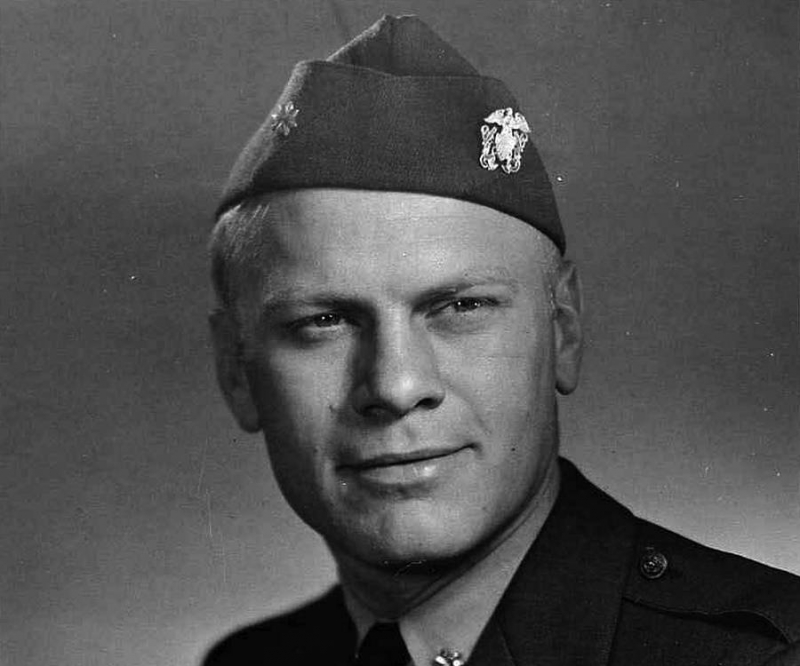
Source: Famous People 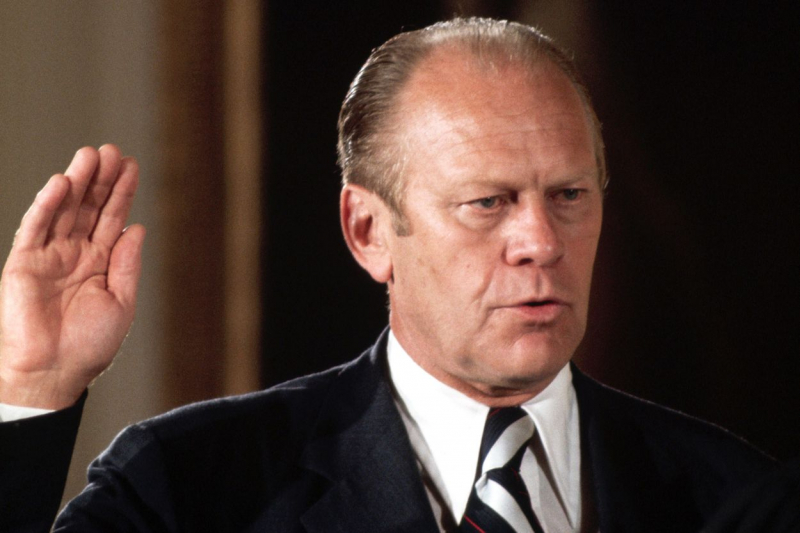
Source: ThoughtCo -
Gerald R. Ford, a congressman from Michigan who later became president, was born in Omaha, Nebraska. He was initially elected to the U.S. House of Representatives in 1948 and went on to serve 13 consecutive terms, eventually becoming the House Minority Leader in 1965. Ford was the first vice president to be nominated by the president under the Twenty-fifth Amendment, following the resignation of Vice President Spiro Agnew in December 1973. Ford became president when Richard M. Nixon resigned on August 9, 1974, as a result of the Watergate Scandal, over ten months later. Ford completed Nixon's term, but he failed to win reelection in 1976.
Representative John Dingell of Michigan, who served in the House with Ford, honored his friend for the character traits that made him popular with so many colleagues from both parties after the Michigan legislator passed away on December 26, 2006. Jerry was described by Dingell as "warm, gentle, polite, pleasant, and courteous." He never cursed, loved his kids and family dearly, and most of all, he loved Betty. The House and Senate decided to have President Ford's body lay in state in the Capitol Rotunda from December 30, 2006, to January 2, 2007, as a final homage.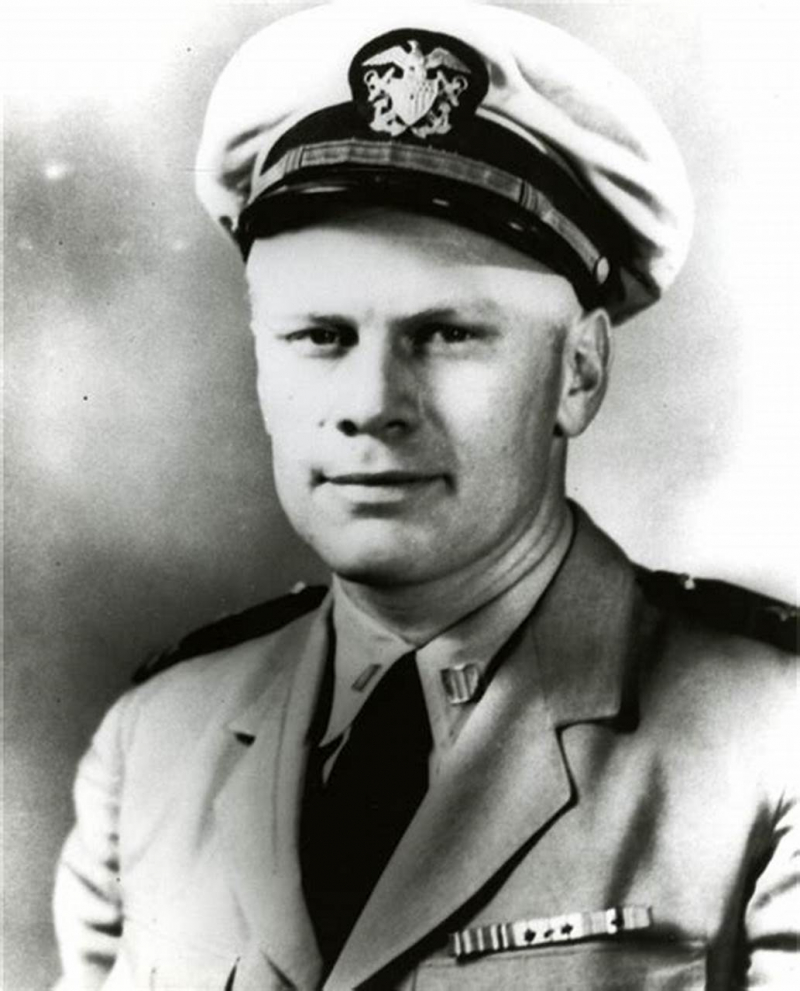
Source: United States Navy 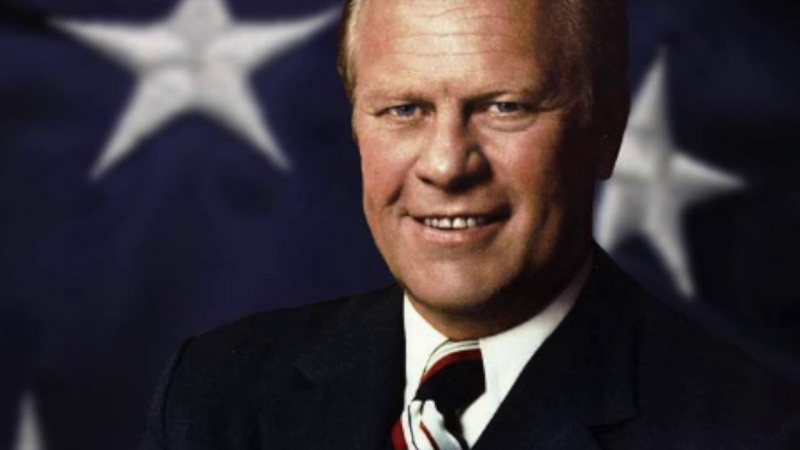
Source: YouTube -
Ford was named by President Lyndon B. Johnson to the Warren Commission, which was looking into the assassination of John F. Kennedy, in late 1963. Ford later co-authored the book "Portrait of the Assassin," which details the commission's conclusions (1965). Not only was Ford leaking the commission's deliberations to Hoover and Sloyan (and presumably, to Nixon), but on the eve of the publication of the Warren Report, he rushed to publicly endorse its coming finding that Oswald was solely to blame for Kennedy's murder. In the Oct. 2, 1964 issue of Life, he stressed that the "sorely disturbed" Oswald's "faith in Communism and the writings of Karl Marx" made him "look to Cuba as the as the place where … his shadowy philosophical theories might possibly come to fruit."
Hoover's man on the commission added, "there is not a scintilla of credible evidence" to suggest a conspiracy to kill JFK, adding, "The evidence is clear and overwhelming: Lee Harvey Oswald did it. There is no evidence of a second man, of other shots, of other guns. There is no evidence to suggest that Oswald went to work at the Depository for the long-range purpose of killing the President, that Jack Ruby knew Oswald before he killed him, or that either of them knew Officer Tippit (the Dallas policeman who was killed the afternoon of the assassination).
Hoover himself helped promote the commission's finding two days before the Warren Commission was even formed. He personally ordered a leak to United Press International that resulted in a worldwide wire story that began: "WASHINGTON – An exhaustive FBI report now nearly ready for the White House will indicate that Lee Harvey Oswald was the lone and unaided assassin of President Kennedy, government sources said today."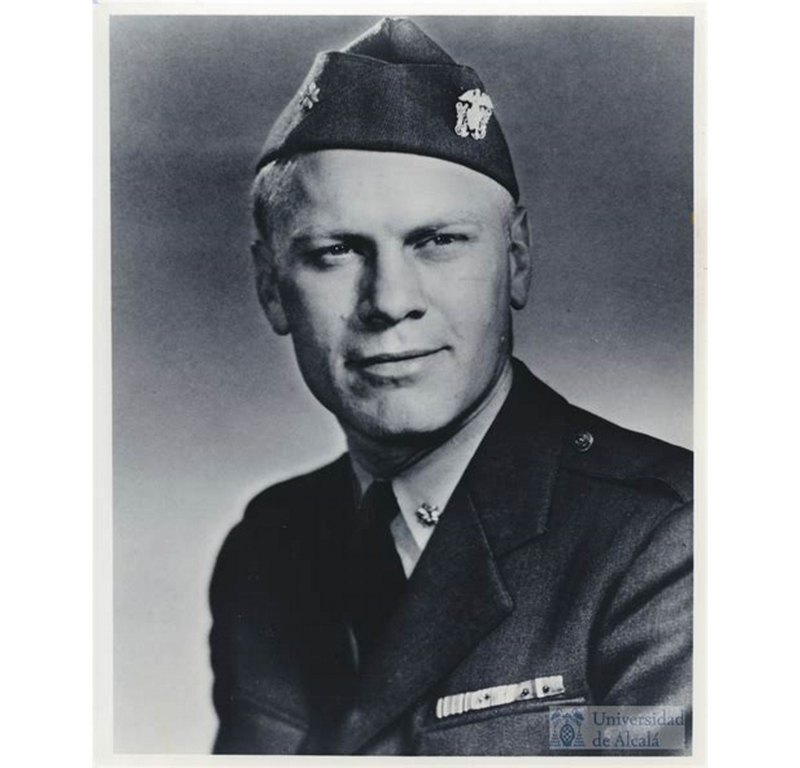
Source: ebuah.uah.es 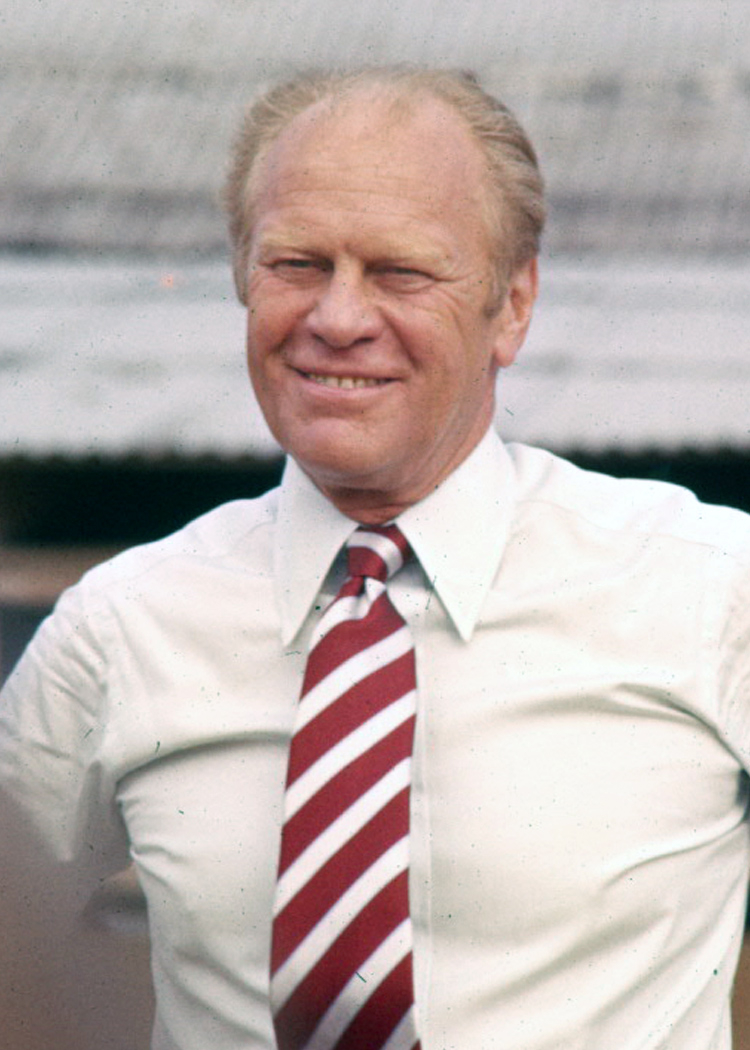
Source: Pics4Learning -
Nixon had the authority to name a successor according to the 25th Amendment of the Constitution when Vice President Spiro Agnew resigned in the late 1970s after pleading no contest to tax evasion. He picked Ford, who would go on to become the first vice president appointed in accordance with the terms of the amendment following a comprehensive background investigation by the FBI and approval by the Senate and House. Ford was sworn in on December 6, 1973, although he would only hold the position of vice president for nine months until the complicated Watergate affair forced Nixon to step down as the first president in history.
The U.S. economy was in shambles, there was a rising global oil deficit, and the country had just gone through a protracted scandal that had tarnished the top levels of its leadership when Ford assumed the presidency. In a memorable inaugural address, Ford declared that “Our long national nightmare is over. Our Constitution works,” and urged Americans to join together to bind the wounds of Watergate.
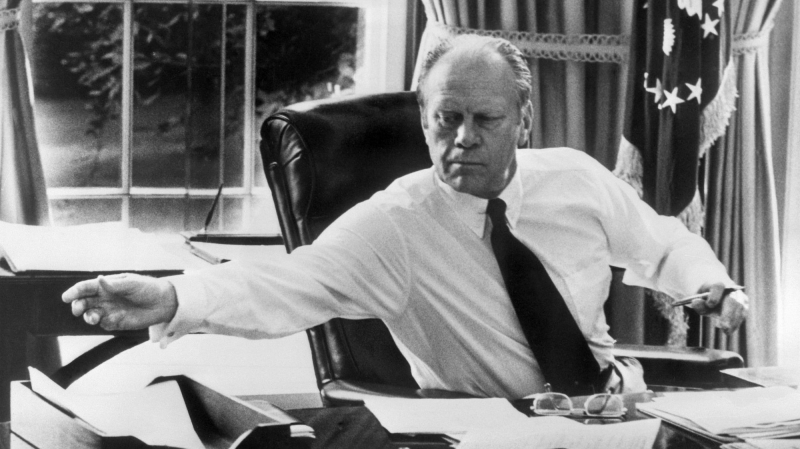
Source: Mental Floss 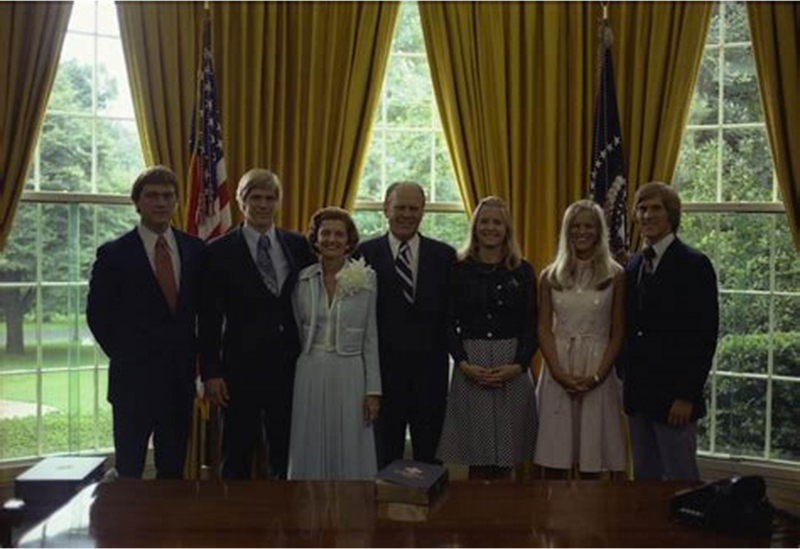
Source: geraldrfordfoundation.org -
Ford only spent 896 days in the White House. In September 1974, his decision to pardon Richard Nixon in full and without conditions shocked, infuriated, and led to accusations that he had made a secret agreement with his predecessor. Ford never wavered in his belief that the choice was the right one, even though it probably contributed to the negative perception of his administration as a whole and cost him the 1976 election to Jimmy Carter. Nixon believed that if he had been put on trial while he was president, "all of the healing process that I thought so vital would have been far more difficult to achieve," according to his 1979 autobiography and chats in retirement.
Regarding the Watergate incident, Ford declared that America's "long national nightmare" had ended when he took office on August 9, 1974. Ford had to make a decision on Nixon's impending indictment without any historical or legal precedents, but after giving it some thought, he decided to fully pardon Nixon for all crimes against the United States in order to put the tragic and disruptive affair behind everyone involved. Ford defended this choice by arguing that a protracted trial would only have split the public more. Many people opposed Ford's decision to pardon Nixon, and it is believed that this move played a part in Ford's loss of the 1976 presidential election.
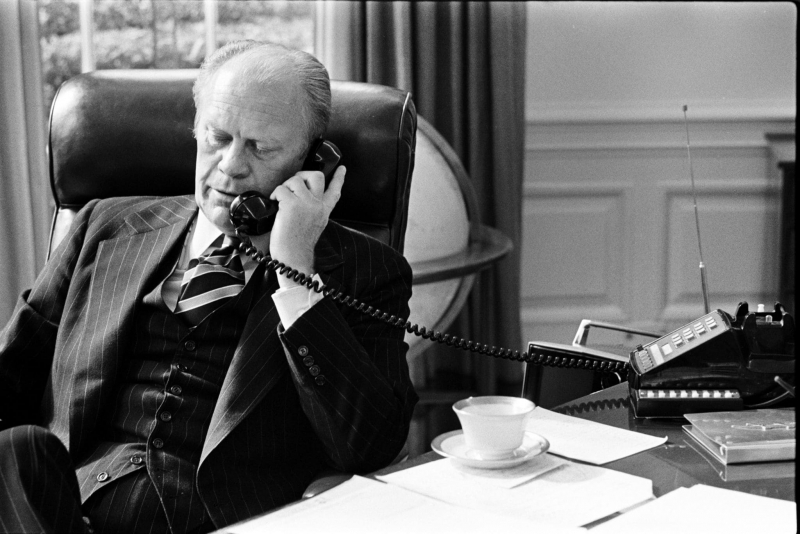
Source: kennerly.com 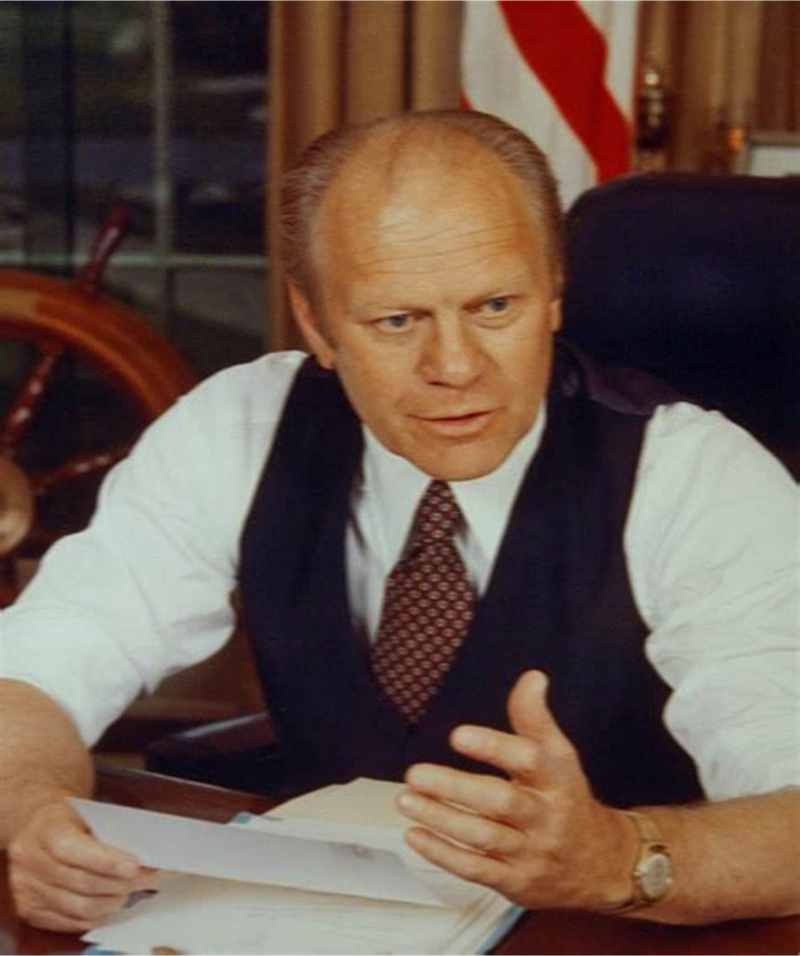
Source: zachsmithwick.com -
On September 5, 1975, in Sacramento, California, a woman named Lynette “Squeaky” Fromme had also attempted to shoot Ford. Fromme, a drug-addled Charles Manson follower, and Moore, a mentally unstable former FBI informant and accountant who fell into fringe revolutionary politics, both targeted Ford as a symbol of their hatred for the political establishment. Moore served time in the same prison in West Virginia as Fromme. Fromme escaped the prison in 1979, but was caught and transferred to a higher-security facility. Moore escaped in 1989, but turned herself in two days later and, like Fromme, was transferred to a more secure penitentiary. On December 31, 2007, Moore was released on parole.
On September 22, 1975, Sara Jane Moore aims a gun at President Gerald Ford as he leaves the Saint Francis Hotel in San Francisco, California. The attempt on the president’s life came only 17 days after another woman had tried to assassinate Ford while he was on his way to give a speech to the California legislature in Sacramento. Moore’s attempt was thwarted by a bystander, Oliver Sipple, who instinctively grabbed Moore’s arm when she raised the gun. She was able to fire off one shot, but it failed to find its target. Secret Service agents quickly hustled Ford into a waiting vehicle and sped him to safety.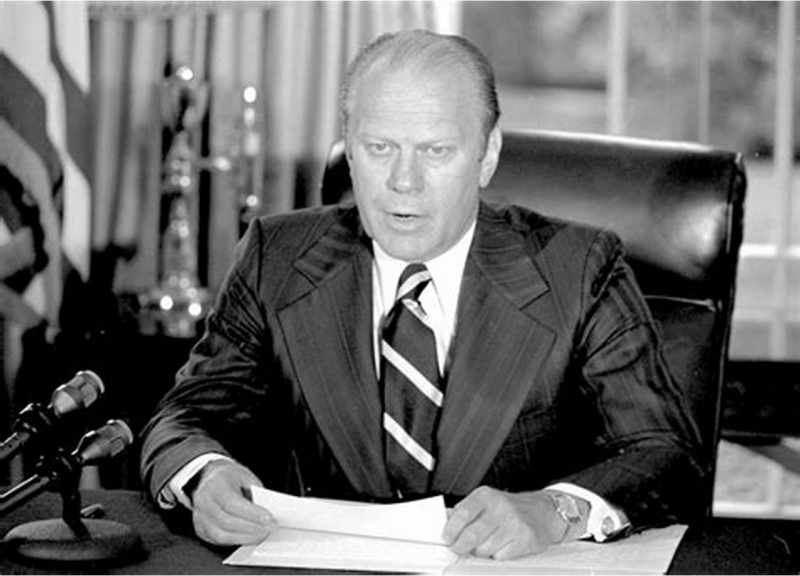
Source: cleveland.com 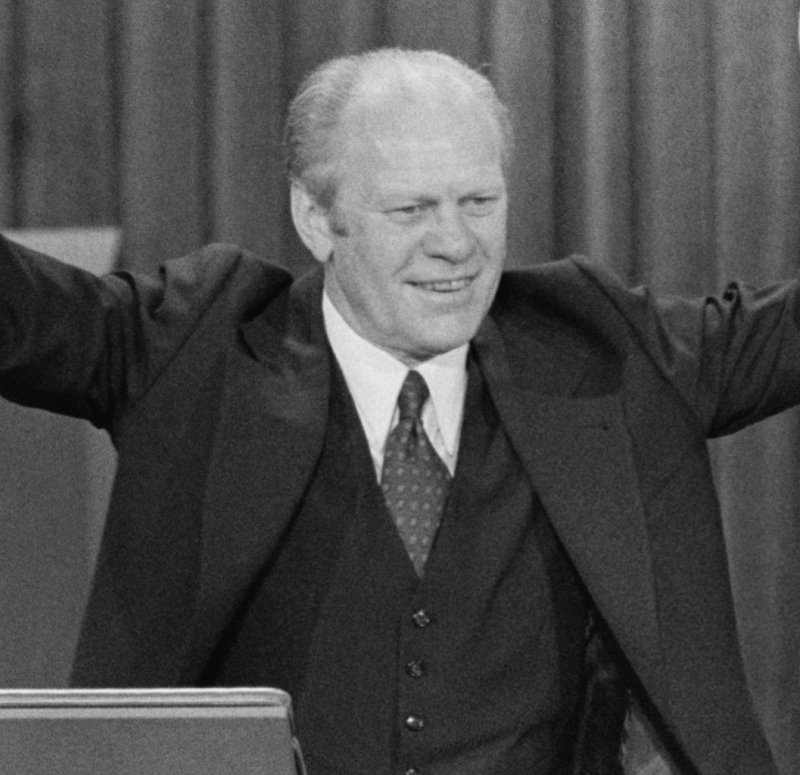
Source: Wikimedia -
On October 15, 1948, future President Gerald Ford marries Elizabeth Anne (“Betty”) Bloomer. It was during one of his modeling jobs that he met his future wife, Elizabeth Anne Bloomer, who was called Betty. Ford went on to serve in World War II from 1942 until the war ended in 1945.
Following the war, he began a law practice and became involved in Republican politics. His passion for football was so keen that during his honeymoon in 1948, Ford took his new bride to a Michigan State University Rose Bowl playoff game against Northwestern University. That same year, he was elected to Congress; his career included service on the Warren Commission that investigated President John F. Kennedy’s assassination. In December 1973, President Richard Nixon chose Ford as his vice president after Spiro Agnew resigned following charges of tax evasion. In 1974, Nixon himself resigned in the face of impeachment by Congress over the Watergate scandal. Ford took the oath of office on August 9, 1974.
Betty tried to keep a low profile during Ford’s presidency. However, in 1974, during Ford’s last days in office, she went public with the announcement that she had been diagnosed with breast cancer, helping to develop greater public awareness of the deadly disease and inspiring women to seek early detection and treatment. After Ford left office, Betty publicly shared another personal struggle—her battle with addiction to alcohol and painkillers. In 1982, she opened the now-famous Betty Ford Center, an addiction-treatment clinic at the Eisenhower Medical Center in Rancho Mirage, California. In 2005, her husband presented her with the Gerald R. Ford Medal for Distinguished Public Service.
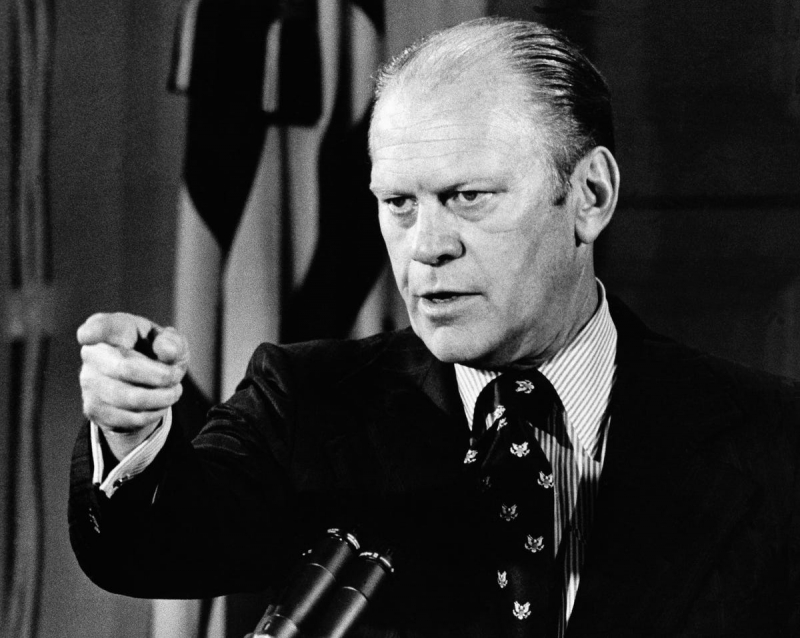
Source: cleveland.com 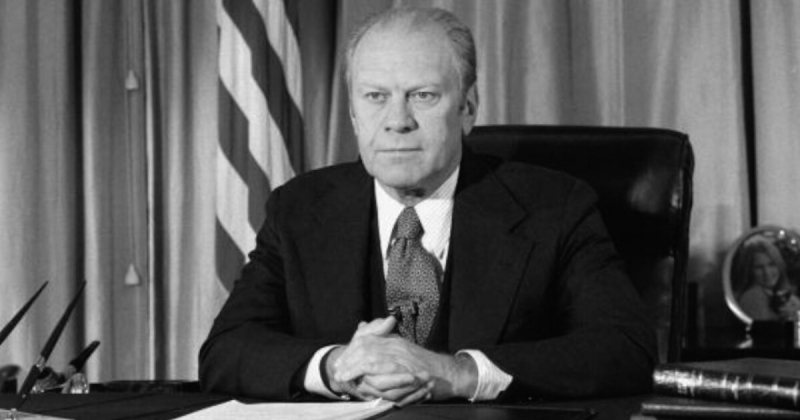
Source: FOX 17




























